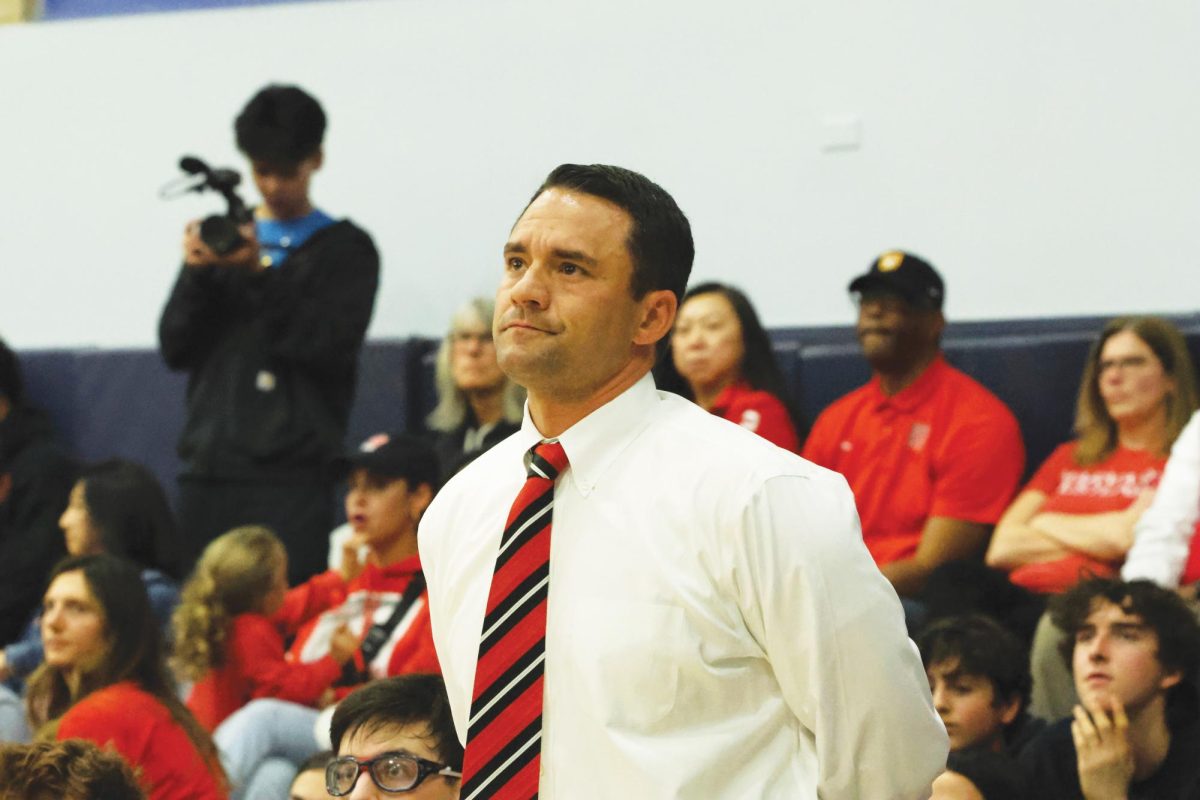By Ava Kofman, Drew Lash, and Jennie Porter
Irma Hernandez sits in her office adjacent to the bookstore and pulls open a thick white binder stuffed with pages of typed lists. She calls it “The Bible.” It contains all the course information for the entire school and the requests necessary to order books for any course at the Upper School â a process which takes over two months.
“It is definitely one of the biggest operations on campus,” she says flipping through to the 10th grade English section, where 10,000 books were purchased for one year.
The process begins in the spring after departments finalize their lists and turn them into the bookstore. The bookstore orders them from the publishers for the lowest prices. The books are then delivered, catalogued, and if necessary, damaged books are returned. The ordeal of sorting through the thousands of books takes about two months and students are hired over the summer to aid the long process. The main job of all of the student employees is to count, catalogue and sort all of the books. Each individual student has their own book box and it is the job of the students to put the right books for each student in their own box.
“Didax is our lifesaver,” Hernandez said, referring to the schoolâs computerized organizing system.
Above Hernandezâs office two floors up, Paula Evans, Math Department Chair, is explaining why her department does not “change books on a whim.” Although teachers do not want to change what they teach, ordering books can be confusing because they have to decide what “packaging to get.” The math department orders over 1,000 books a year.
The math department heavily supplements their books with notes and review materials to “fit an entire notebook,” Evans said. She cited Statistics and Discrete Mathematics as the most supplemented class due to the wide range of topics covered.
Switching books can be a necessity because used books are hard to find and college and SAT expectations keep changing. Edition changes that benefit students are inevitable as well.
“Publishers are making the problems more approachable incorporating [online] materials,” Evans said.
In history as well, books are frequently revised.
“A book may go out of print, we may get tired of a book, there may be a new edition and this prompts us to look for a new book,” History Department Chair Katherine Holmes-Chuba said. “For instance this year the regular U.S. team chose a new book because they had become dissatisfied with the new edition of the old book. So for a year different team members read different text books, and narrowed it down to the one that they choose.”
Larry Weber, English department chair, said he changes an edition when it is physically unstable, unavailable or it offers “esoteric and somewhat useless notes on the text.” There is no policy or limit on the number of books English orders per year.





































